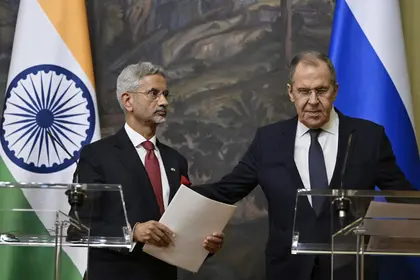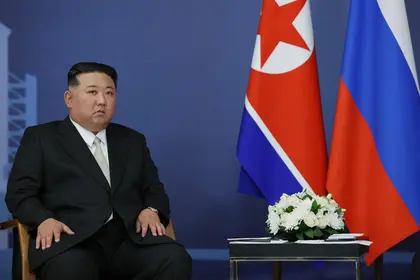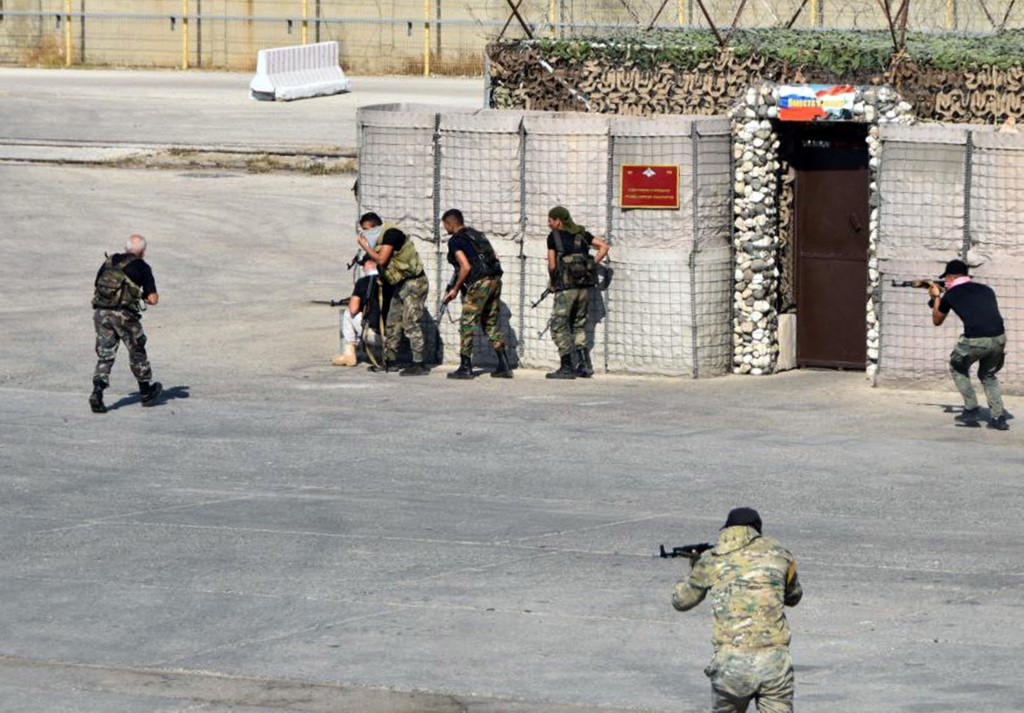India is seeking to distance itself from its largest arms supplier after Russia’s ability to supply munitions and spares was hobbled by the war in Ukraine, but must step carefully to avoid pushing Moscow closer to China, Indian sources said.
The world’s biggest arms importer is slowly turning West as the United States looks to strengthen ties in the Indo-Pacific region, hoping to contain an ascendant China by weaning the South Asian nation off a traditional dependence on Russia.
JOIN US ON TELEGRAM
Follow our coverage of the war on the @Kyivpost_official.
Russia supplied 65% of India’s weapons purchases of more than $60 billion during the last two decades, according to the Stockholm International Peace Research Institute, but the Ukraine war hastened the impetus to diversify its weapons base.
“We are not likely to sign any major military deal with Russia,” said Nandan Unnikrishnan, a Russia expert at New Delhi think tank the Observer Research Foundation. “That would be a red line for Washington.”
That view comes despite Moscow’s offers, described by four Indian government sources, among them a senior security official who recently retired, as including platforms such as the most advanced Kamov helicopters and Sukhoi and MiG fighter jets, with the added fillip of joint manufacturing in India.
All four sources spoke on condition of anonymity to discuss a sensitive subject.
The foreign and defence ministries of India and Russia did not respond to requests for comment.

Syria War Monitor: Russian Air Strikes Hit Aleppo Area First Time Since 2016
Russia has publicly urged India to step up defence ties, but Prime Minister Narendra Modi has turned his focus to domestic production with Western technology, experts and officials said.
Such efforts would better fit Modi’s “Make in India” programme to encourage domestic manufacturing, as he makes a rare bid for a third term in general elections due by May.
India expects to spend nearly $100 billion on defence orders over the next decade, its defence minister has said.
Last year, India and the United States signed a deal for General Electric to produce engines in India to power its fighter jets, the first such US concession to a non-ally.
They also plan to “fast-track” technology co-operation and co-production in areas ranging from air combat to intelligence, they said at the time.
Further driving India’s ties with the United States is disquiet over China, as their troops are embroiled in a standoff on their Himalayan frontier since 2020, when one of their bloodiest clashes in five decades killed 24 soldiers.
The nuclear-armed neighbours fought a war in 1962, but their frontier, more than 2,000 miles (3,200 km) long, is still contested.
Closer to Beijing
India must walk a fine line in ties with Russia, as the largest buyer of its arms and, since 2022, one of the largest purchasers of its oil. Halting such trade would push Moscow closer to Beijing, the only other major economy it deals with.
“Arms purchase buys you influence,” said the retired security official. “By shutting them out you make them subservient to China.”
Trade with Russia in energy and other areas would help “keep it as far away as possible from China,” added Unnikrishnan, the analyst.
Russia’s arms exports have largely stabilised since the Ukraine war’s early disruptions, which fuelled concerns about India’s operational readiness, the officials said, but the fears have not entirely dissipated.
“As the Ukraine war stretches, it raises questions if Russia will be able to give us spare parts,” said Swasti Rao, Eurasia expert at the state-run Manohar Parrikar Institute for Defence Studies and Analyses. “It is fuelling the diversification.”
India is eyeing French jets for its latest aircraft carrier and wants to make submarines with French, German or Spanish technology, and fighter jets with American and French engines, the sources said.
“India’s multi-alignment will continue, to straddle ties with Russia and balance it with the West, but it will not be an equal distribution,” Rao said.
Russian push
Russian Foreign Minister Sergei Lavrov made the latest push for more defence deals with India on 27 December, during a joint press conference, with Indian counterpart Subrahmanyam Jaishankar who was visiting Moscow.
Lavrov said he discussed with Jaishankar prospects for military and technical co-operation, including joint production of weapons, adding that Russia was also ready to support India’s goal of increasing domestic production.
Jaishankar responded that ties were very strong, with two-way trade at a record, thanks to deals in energy, fertiliser and steel-making coal, but stopped short of mentioning defence.
There has been no progress on a 2015 deal for the two nations to jointly make Kamov Ka-226T helicopters in India, with 200 going to its defence forces.
Instead, in 2022, India started inducting combat helicopters made by state-run Hindustan Aeronautics Ltd.
Weapons, from Soviet or Russian-origin tanks to an aircraft carrier and surface-to-air missile systems, make up more than 60% of India’s military hardware.
New Delhi will require Russian spares for their maintenance and repair for nearly two decades, officials said.
They jointly make the BrahMos cruise missile and plan to produce AK-203 rifles in India.
But hiccups have included comments last year by the Indian Air Force that Russia had been unable to meet its commitment on delivery of a major platform it did not identify.
And there has been more than a year’s delay in Russia’s delivery of parts of an air defence system India bought in 2018 for $5.5 billion, two Indian military officials said.
Reprinted from euractiv.com.
You can see the original report here.
You can also highlight the text and press Ctrl + Enter






